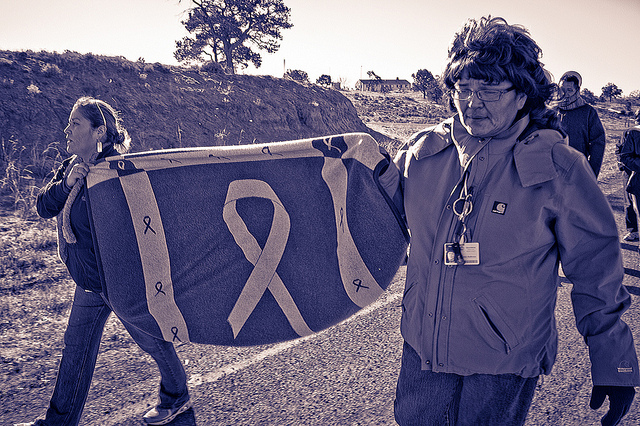Advocates regrouping after Violence Against Women Act stuck in Congress
By Alison Cuddy

Advocates regrouping after Violence Against Women Act stuck in Congress
By Alison Cuddy
The 112th Congress may have avoided diving off this mythical “fiscal cliff” we’ve all been hearing about. But legislators left behind some serious unfinished business: They failed to re-authorize the Violence Against Women Act (VAWA).
The Act provides federal money to protect women and children in abusive situations. That protection varies from support for kids in abusive homes, to help for women seeking restraining orders or divorces, to education for law enforcement. It was first passed in 1994 and has been re-authorized twice, with more or less bipartisan support.
Denice Wolf-Markham heads Lifespan, a group which provides legal services and counseling to women.
“The Act and its various re-authorizations and changes and improvements has been a key tool in helping stop domestic violence and addressing the safety concerns of its victims,” Wolf-Markham said. “I find it appalling and an outrage that there’s not more of an outcry.”
Political Machinations
Legislators did come close this time. In April of last year, the Senate passed a re-authorization that would extend or enhance protections for a number of groups,including gays, lesbians and transgenders, undocumented immigrants and American Indian women living on reservations.
Then last May the House passed its version, which took out those protections. Ensuing negotiations failed to produce compromise legislation.
Wolf-Markham is perplexed by this outcome.
“How Congress can, with impunity, ignore the needs of domestic violence and sexual assault victims is beyond (me),” she said. “I can’t explain it.”
Some pundits and legislators think the explanation is simple: Legislators don’t care about women. But are the politics that easy?
The Politics of Women’s Health
Women’s health issues were deeply politicized during the 2012 election. Given that climate, advocates like Dawn Dalton of the Chicago Metropolitan Battered Women’s Network were certain the Act wouldn’t pass before the election.
But Dalton thinks that overall, politics around women’s health are mixed. While the VAWA was not re-authorized, she points to support on other fronts.
“One provision in the Affordable Care Act is a requirement for health care settings to begin providing domestic violence screening and counseling,” Dalton said “So there’s a juxtaposition - movement in some areas, and not in others.”
And Dalton thinks it might come also come down to bureaucratic wrangling. Dalton says advocates heard the Act was a non-starter from some Hill staff, who faced a mountain of legislative to-dos before the Congressional session came to an end.
Selling the Act to constituents
The Senate protections push other political hot buttons as well, including immigration and gay rights. Which means they might have proven tough-sells with some political constituents.
For example, if an immigrant woman without legal status in the United States is assaulted, and then helps law enforcement with the prosecution of that crime, she can apply to receive a U Visa, which would provide temporary residency and work status.
That provision is already in the existing VAWA, which was last authorized in 2005. But Dalton says the Senate re-authorization would increase the number of U Visas available. Conversely, according to Dalton, the House version of the Act would actually make it harder for immigrant women to get those visas.
Does the Violence Against Women Act serve all women?
To further complicate the political picture, there are some advocates for women’s health and safety who aren’t entirely satisfied with the legislation.
Dorene Weise of the American Indian Association of Illinois says to her, even the Senate bill was not enough.
“It was mostly focused on reservation communities, in terms of programs for American Indian women,” Weise said. “Most are currently living off reservation, in rural and urban communities.”
Weise adds that the legislation wouldn’t allow a non-profit like hers to apply for funding for the population they serve.
“American Indian women are the poorest people in America by income,” Weise said. “Most people don’t know that.”
Weise adds most American Indian women are not served by these programs.
“They will continue to not be served, and just kind of have to survive on their own or with a little bit of help that social service organizations can give them,” she said.
